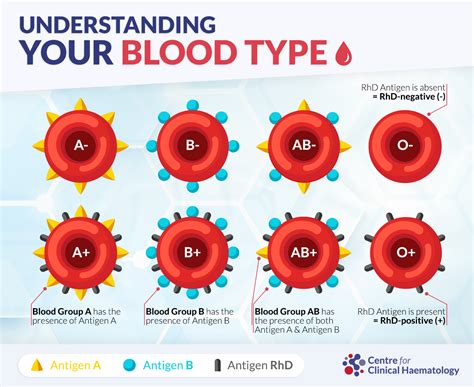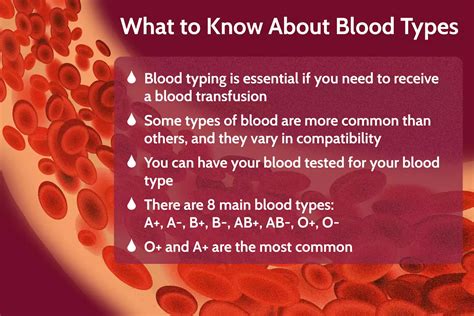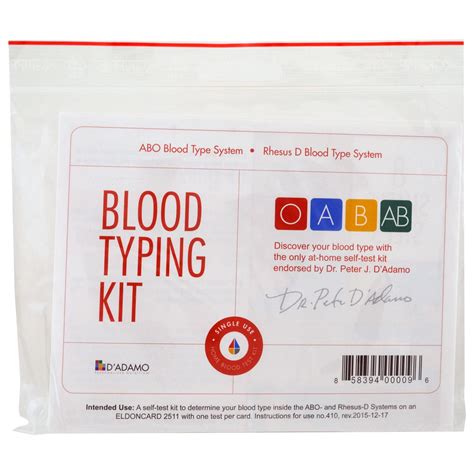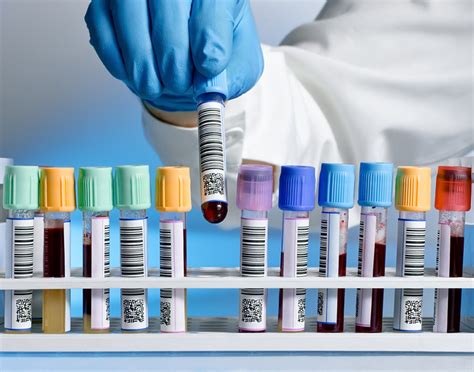Intro
Discover your blood type easily with our guide, covering ABO blood groups, Rh factor, and blood typing methods, to help you understand your unique blood classification and donation compatibility.
Knowing your blood type is crucial for various medical procedures, including blood transfusions and organ donations. It's also interesting to learn about the different blood types and their characteristics. With the advancement of medical technology, finding your blood type has become easier and more accessible. In this article, we will explore the importance of knowing your blood type, the different blood types, and how to find yours easily.
The importance of knowing your blood type cannot be overstated. It's essential for ensuring compatibility during blood transfusions, which can be life-saving in emergency situations. Moreover, knowing your blood type can also provide insights into your health and potential risks. For instance, certain blood types are more prone to specific diseases, and being aware of your blood type can help you take preventive measures. Additionally, knowing your blood type can also be useful for pregnant women, as it can help identify potential complications during pregnancy.
In recent years, there has been a growing interest in learning about blood types and their characteristics. Many people are curious to know their blood type, not just for medical reasons but also for personal interest. With the rise of online resources and medical advancements, finding your blood type has become easier and more convenient. You can now learn about your blood type from the comfort of your own home, without having to visit a doctor or a medical facility. Whether you're curious about your blood type or need to know it for medical reasons, this article will guide you through the process of finding your blood type easily.
Understanding Blood Types

There are four main blood types: A, B, AB, and O. These blood types are determined by the presence or absence of specific antigens on the surface of red blood cells. Antigens are substances that can trigger an immune response, and in the case of blood types, they determine whether your blood is compatible with another person's blood. The four main blood types are further divided into subcategories, known as Rh positive (Rh+) and Rh negative (Rh-), which refer to the presence or absence of the Rh antigen.
ABO Blood Group System
The ABO blood group system is the most important blood type system in human medicine. It's based on the presence or absence of A and B antigens on the surface of red blood cells. People with type A blood have A antigens, while those with type B blood have B antigens. Individuals with type AB blood have both A and B antigens, and those with type O blood have neither A nor B antigens.Benefits of Knowing Your Blood Type

Knowing your blood type can have several benefits, including:
- Ensuring compatibility during blood transfusions
- Identifying potential health risks and taking preventive measures
- Informing medical decisions during pregnancy and childbirth
- Enhancing personal knowledge and awareness of your body
- Facilitating organ donations and transplants
How to Find Your Blood Type
There are several ways to find your blood type, including: * Donating blood or plasma * Undergoing a medical test, such as a blood typing test * Asking your doctor or healthcare provider * Using an at-home blood typing kit * Checking your medical records or birth certificateAt-Home Blood Typing Kits

At-home blood typing kits have become increasingly popular in recent years. These kits usually involve a simple finger prick test, which collects a small sample of blood. The blood sample is then placed on a testing card or device, which reveals your blood type. At-home blood typing kits are convenient, easy to use, and provide accurate results. However, it's essential to choose a reputable and FDA-approved kit to ensure accuracy and reliability.
Online Resources and Blood Typing Quizzes
There are also several online resources and blood typing quizzes available, which can help you estimate your blood type. These quizzes usually ask a series of questions, such as your medical history, family background, and physical characteristics. While these quizzes can be entertaining and informative, they are not always accurate and should not be relied upon for medical purposes.Medical Tests and Blood Typing

Medical tests, such as blood typing tests, are the most accurate way to determine your blood type. These tests involve analyzing a sample of your blood to identify the presence or absence of specific antigens. Medical tests are usually performed in a laboratory or medical facility, and the results are provided by a healthcare professional.
Importance of Accurate Blood Typing
Accurate blood typing is crucial for ensuring compatibility during blood transfusions and medical procedures. Inaccurate blood typing can lead to serious health complications, including allergic reactions, organ failure, and even death. Therefore, it's essential to rely on medical tests and reputable sources to determine your blood type.Conclusion and Next Steps

In conclusion, finding your blood type is easier and more accessible than ever. Whether you're curious about your blood type or need to know it for medical reasons, there are several options available. From at-home blood typing kits to medical tests, you can choose the method that suits you best. Remember to always rely on reputable sources and medical professionals to ensure accurate results.
We invite you to share your thoughts and experiences with blood typing in the comments below. Have you found your blood type? What method did you use? Share your story and help others learn more about the importance of knowing their blood type.
What are the different blood types?
+The four main blood types are A, B, AB, and O, which are further divided into subcategories, known as Rh positive (Rh+) and Rh negative (Rh-).
How can I find my blood type?
+You can find your blood type by donating blood or plasma, undergoing a medical test, asking your doctor or healthcare provider, using an at-home blood typing kit, or checking your medical records or birth certificate.
What is the importance of knowing my blood type?
+Knowing your blood type is crucial for ensuring compatibility during blood transfusions, identifying potential health risks, informing medical decisions during pregnancy and childbirth, and enhancing personal knowledge and awareness of your body.
